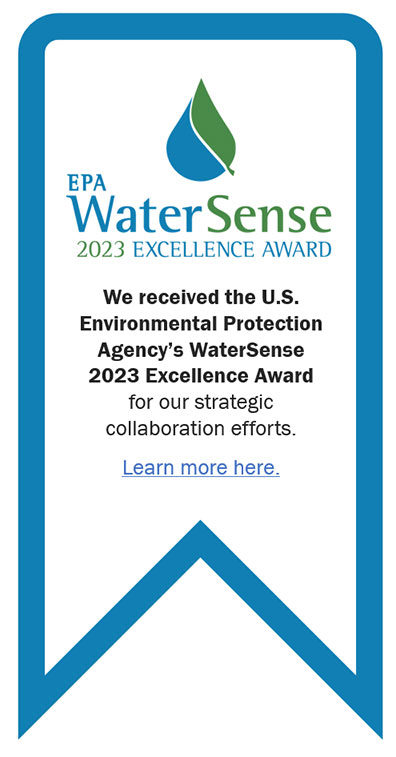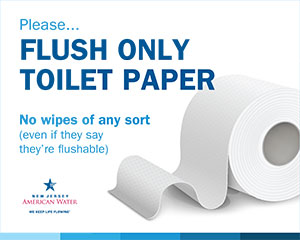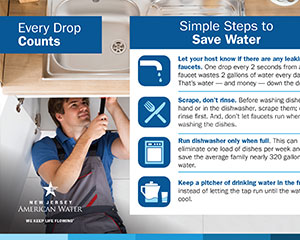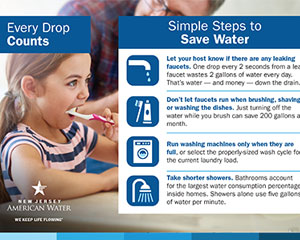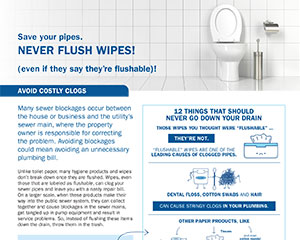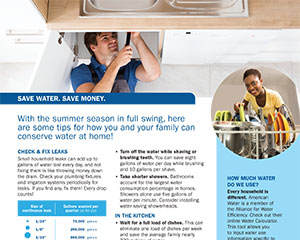WISE WATER USE
We are constantly looking for ways to help ensure water is available for future generations. Part of that commitment includes helping our customers understand what they can do to help. We do that in a variety of ways: in customer bills, in our newsletters, and here on our website. By using the tips and tools below, you can make wise water use a part of your daily routine and also save water and money.
Due to the Statewide Drought Warning that Governor Murphy and the New Jersey Department of Environmental Protection declared on November 13, New Jersey American Water has issued a mandatory conservation notice for all customers across the state to reduce water usage. Click here to learn about local drought information provided by the New Jersey Department of Environmental Protection.
Customers must limit all non-essential water use, including all outdoor watering. Plants require less water in the fall, so allow them to go dormant for the season, and postpone water-intensive landscaping until spring. Customers should also winterize irrigation systems by turning off and draining sprinkler systems, outdoor spigots, and hoses. Additional indoor and outdoor water-saving tips can be found below.

